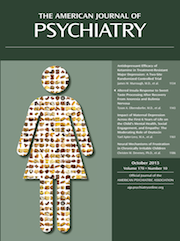Association Between Variation in Neuropsychological Development and Trajectory of ADHD Severity in Early Childhood
Abstract
Objective
This longitudinal study examined if changes in neuropsychological functioning were associated with the trajectory of symptoms related to attention deficit hyperactivity disorder (ADHD) and impairment between preschool and school age.
Method
The sample consisted of 3- and 4-year-old children (N=138) who were identified as being at risk for ADHD based on parent and teacher reports. Neuropsychological functioning was measured annually using the NEPSY at four time points (mean ages, 4.19, 5.36, 6.35, and 7.35 years). ADHD symptoms and impairment were assessed with semiannual parent and teacher reports using the ADHD Rating Scale–IV and the Children’s Problems Checklist at 10 time points (mean ages at baseline and final assessment, 4.19 and 8.81 years, respectively). Hierarchical linear modeling was used to assess the trajectories of change in neuropsychological functioning and ADHD severity as well as the association of change in neuropsychological functioning with change in ADHD severity over time.
Results
Baseline neuropsychological functioning was not significantly associated with the slope of change in ADHD severity. However, the magnitude of change in neuropsychological functioning was linearly associated with the trajectory of ADHD symptom severity and impairment, such that individuals with greater neuropsychological growth over time had a greater diminution of ADHD severity and impairment. Family socioeconomic status at baseline was significantly associated with initial ADHD severity and impairment, but not with change over time.
Conclusions
Interventions that enhance neuropsychological functioning at an early age may be beneficial in attenuating long-term ADHD severity and impairment.



